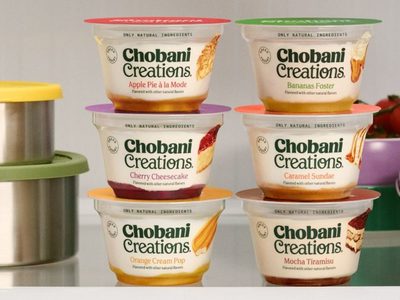“Our 2013 findings are consistent with the growing importance of health in America — if not yet as a daily routine then certainly as a primary goal for three out of four consumers,” said Mike Weisman, president of the Values Institute at DGWB. “More than ever, health is the new prestige barometer — meaning that most Americans would rather be called healthy than wealthy.
“Certainly, this trend will have major implications for marketers and retailers looking to sway consumer opinion in 2013 and beyond.”
The five trends identified by DGWB were:
1. Food waste consciousness. New mobile apps will help consumers plan meals from leftovers and manage portion size, the group said.
2. Wellness in the workplace. There are expected to be more discounted gym memberships, group Weight Watchers accountability plans and active design workspaces in 2013.
3. Mini-meals and snacking. More convenient, healthy snack foods beyond 100-calorie cookies are expected to be introduced in 2013, DGWB said.
4. Meatless mainstreaming. This trend includes a move toward meatless eating and outright veganism.
5. Going against the grain. Consumers’ desire for gluten-free products will continue to lead to more new products in the gluten-free category, DGWB said.
The Values Institute at DGWB is a division of Santa Ana-based DGWB Advertising & Communications. The agency’s Balanced Healthy practice teamed up with Iconoculture in early 2011 to study the behavior of the 76% of Americans who actively take steps to maintain or improve their health. A total of 2,800 adults ages 18 and above participated in the national on-line study rating personal values and health actions. This undertaking led to the creation by DGWB and Iconoculture of six new healthy consumer segments that are based on shared values rather than traditional usage and demographics.
“By looking at shared values instead of the more traditional metrics, we’re able to connect people at a deeper level on the basis of their common emotional and philosophical beliefs about health and wellness,” said Mark Weinfeld, director of The Values Institute. “The study gives us a unique vantage point to accurately identify, follow and predict consumer trends.”



